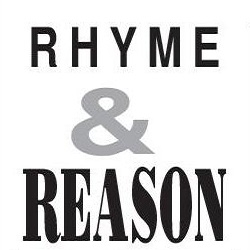STORM STOOPERS
| Date :04-Oct-2024 |

By KARTIK
LOKHANDE :
Since the invasion of
social media on the
public sense and
sensibilities, it has
become easier for
controversy-mongers to
give political overtones
to each and every
debate. The
social-media-verse is
always hungry for new
controversies, to trigger
a flash flood of
‘opinions’, garnished
by old comments dug
out from the
trash-mountain of
previous posts, and
flavoured with ugly and
unwarranted political
twists. All these serve
nothing except adding
fuel to fire.
JUST as it is said that
entertainment sells more
than a strong story, it
seems that controversies
are keeping the people
busy these days. Everyone
seems to be finding opportunity in controversies to express
political, social, cultural, ideological, financial, and even
spiritual convictions.
Unfortunately, very few appear
to be open-minded enough to
find a moment to think whether
all this noise is doing any good
towards enhancing the quality of their day to day life.
Take the latest example of the
row over ‘Tirupati Balaji
Prasadam’. The row erupted
with the allegations of fish oil
and beef tallow in the ingredient used for making of the ‘laddoo’ at the revered temple of
the Hindus. Soon, it assumed
political overtones.
Charges
flew from this side and that
side.What started off as an issue
that hurt religious sentiments
of Hindus, soon snowballed
into a political slugfest. Soon,
the opinion got divided. Who
had issued the tender? To
whom was it awarded? Why ‘X’
company’s tender was given to
‘Y’ company? These questions
sprang up as the controversy
grew bigger. Gradually,
‘prasadam’ at Shri Ram
Janmabhoomi Temple at
Ayodhya and other places of
worship also came into focus.
Meanwhile, the Indian economy kept growing. The IsraelHamas conflict turned into
Israel-Hezbollah conflict, placing the world on the brink of
war. Meanwhile, Lokayukta
registered a First Information
Report (FIR) against Karnataka
Chief Minister Mr.
Siddaramaiah and others in
Mysuru Urban Development
Authority (MUDA) site allotment case. And, Karnataka
withdrew general consent to
Central Bureau of
Investigation. But, ‘Prasadam’
row prevailed over these issues
that merited wider discussion
owing to the allegations of
involvement of people in positions of power. Misuse of power affects every citizen. But,
everybody loves a good controversy, perhaps!
Prior to ‘Prasadam’ row,
Prime Minister Mr. Narendra
Modi visiting the residence of
Chief Justice of India (CJI) D Y
Chandrachud and performing
‘aarti’ of Lord Ganesh had
stirred another short-lived controversy. As soon as the images
appeared on social media,
comments poured in -- questioning Mr. Modi as also the CJI.
There are some controversy
creators too -- some political
leaders often making inciting
statements on television or
lesser-known stars wearing
obscene outfits. These statements and outfits are aimed at
stirring new controversies.
Unfortunately, most television
channels lap up every possible opportunity to give a political twist to attempts of needless controversies. Soon,
‘debates’ are organised where
anchors raise voice and multiple people speak at a time or
counter each other. Whatever
is being marketed as ‘debate’
today on television channels
aims at creating mountain out
of a molehill.
In the process, people forget
the fine difference between
shrillness as a byproduct of
controversy and composure
inherent in any well-reasoned
debate.
The controversies on
non-issues just help in passing time, without enriching or
enlightening anyone. For, controversies are stirred by people
who wish to be in the limelight
for their own gains or by unseen
elements who wish to keep
people ‘engaged’ instead of
‘informed’. Many in today’s
highly politicised society willingly stoop to the level of enjoying storms in teacups.
Since the invasion of social
media on the public sense and
sensibilities, it has become easier for controversy-mongers to
give political overtones to each
and every debate. The socialmedia-verse is always hungry
for new controversies, to trigger a flash flood of ‘opinions’,
garnished by old comments
dug out from the trash-mountain of previous posts, and
flavoured with ugly and unwarranted political twists. All these
serve nothing except adding
fuel to fire. Surprisingly, all
these things vanish from the
scene as soon as something
newer comes up. Again, the
chain reaction starts.
The pattern reminds one of
weighing machine at railway
stations in which one has to just
put in a coin and stand on the
platform.
As soon as the
machine gulps the coin, several things move inside the
machine, and what comes out
is a card showing one’s weight.
But, till then, the person standing on the machine platform
can get engrossed in watching
the colourful wheel in the
machine move. The controversies today are like that. They
suddenly crop up, setting in
motion the wheels of uncalibrated commentary, assume
different colours, keep the people engaged by dividing their
opinion. Meanwhile, those who
trigger the controversies or the
politicians, seize the opportunity of misguiding the confused
society in this or that direction.
The confused society is prone
to crystallising its stereotypes
and get trapped deeper with
every new controversy.
Ultimately, the misguided men
act like guided missiles hitting
political targets for the ones
who fire them. No doubt, some
people continue with their pursuit of understanding an issue
even through the choppy
waters of controversies, but
their number is very low. India has had a great culture
of debates. Sadly, it has been
looked down upon as ‘boring’
or‘preachy’.Through that great
culture of debates, a body of
thought evolved and got passed
on from one generation to
another as collective wisdom.
The world has started ‘enjoying’ deafening DJ music,
instead of melodious music
warming up heats. In this world
of today, sadly, the intellectual and composed debates
appear to have drowned in the
consecutive waves of needless
controversies.
A growing country like India,
that is, Bharat, cannot afford
to allow such love for controversies stunt the intellectual
growth of her people and see
them unnecessarily turn into
storm stoopers.
